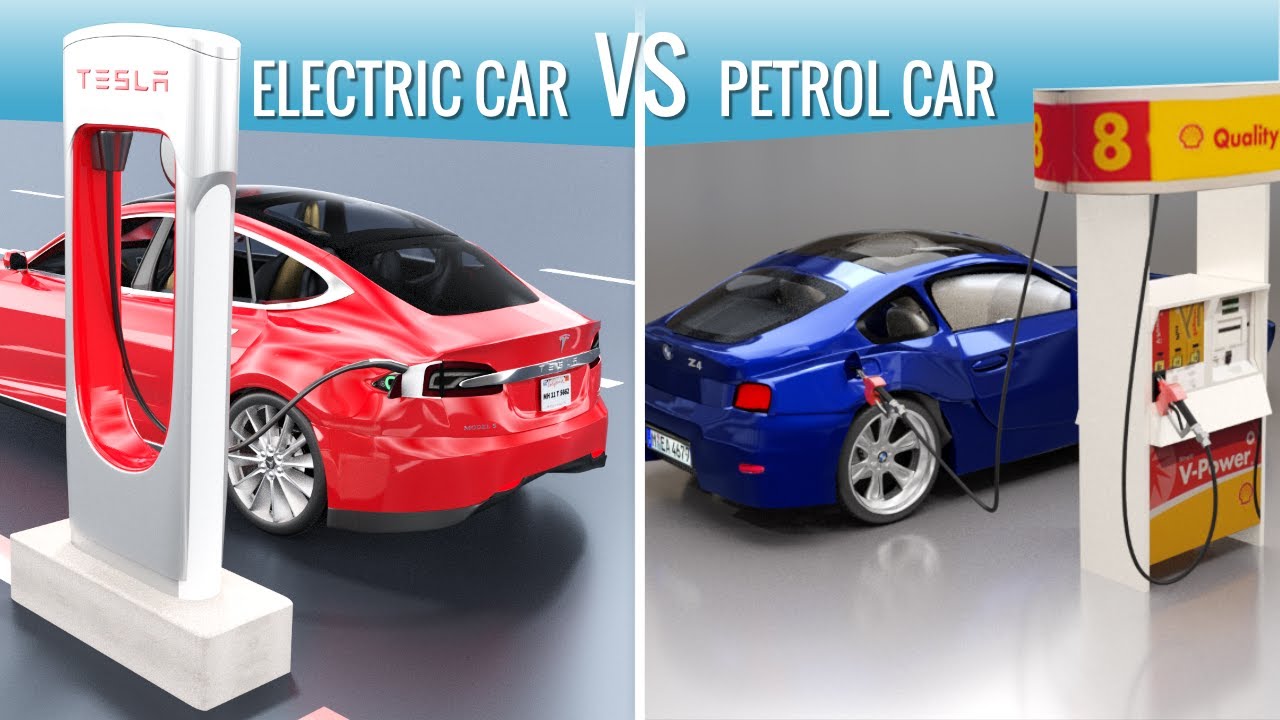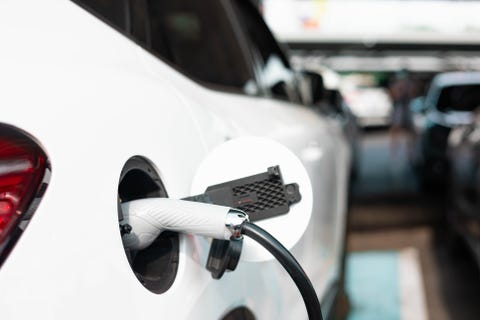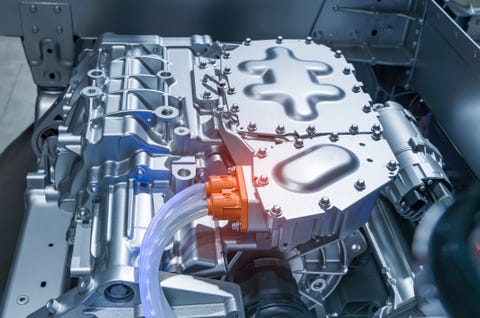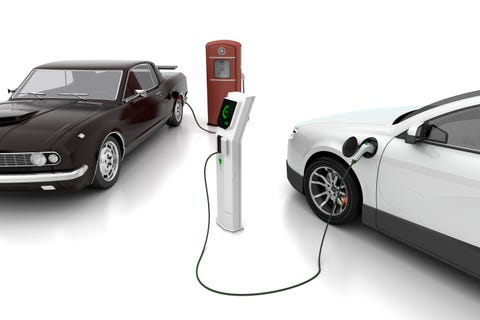Electric Cars vs Gasoline Cars

Fuel and diesel-controlled vehicles are natural, fast to refuel, and can travel significant distances between fill-ups, which can’t (yet) essentially be all said about electric vehicles.
EVs, however, carry with them an entire novel arrangement of up-sides, from an innately invigorating drive feel to a fundamentally less unsafe effect on the climate.
The ongoing thumps against EVs will be settled in time as additional individuals embrace the innovation.
Before deciding to buy an electric car, it’s important to know that EVs aren’t the only electrified vehicles on the road. Electric vehicles rely solely on batteries and electric motors for propulsion. When the car runs short on charge, pull up to a charging station and you’ll be on your way in half an hour or so.
Plug-in hybrids have a battery pack and electric motor(s), but also a gas engine. They are capable of all-electric propulsion, but have a much shorter electric-only range than their EV counterparts. After the electric range is exhausted, the vehicle’s engine takes over and the electric motors fill in the gaps for the gas engine at low speeds.
Gas Vehicles
PROS OF GAS VEHICLES
Gas powered motors have been around for north of 100 years and proposition a recognizable driving encounter. Internal combustion vehicles are not difficult to utilize, simple to fuel, and have a driving reach that makes them functional for long stretch travels. These benefits, alongside the for the most part lower front and center expenses to get them, make internal combustion vehicles alluring for some drivers.
Gas motors have become progressively intricate throughout the long term, and are currently amazingly eco-friendly and strong, however it’s basically impossible to get around the way that consuming fuel makes discharges.

CONS OF GAS VEHICLES
Despite gains in fuel economy and lower tailpipe emissions, gas vehicles’ days are numbered. People’s pessimistic effect on the earth and its environment far offsets the aces of gas vehicles, and vehicle organizations know this. They are creating electric vehicles dangerously fast, and impetuses from the public authority, for example, tax reductions, make electric vehicle purchasing an appealing possibility for some.
Electric Vehicles
Battery power is definitely not another development. Electric cars have been around for just about as long as gas-powered cars. Batteries, charging, range, and a few different variables have changed essentially along the way, however power has for some time been a piece of the car mentality.
Today, worries for the earth, fuel costs, discharges, and different variables are driving purchasers to electric vehicles in expanding numbers. Ongoing examinations demonstrate that EVs will overwhelm internal combustion vehicles by 2033 in numerous nations, and overall only two or after three years.
WHAT IS AN ELECTRIC VEHICLE?
We are using the term electric vehicles here to describe pure EVs, not hybrids or plug-in hybrids. Those vehicles, while delivering massive fuel-efficiency benefits over gas vehicles, don’t offer the same fuel savings or experience as electric cars.
DRIVING AN ELECTRIC VEHICLE
Driving an electric vehicle isn’t similar to driving a spaceship or an outsider vehicle. Other than the way that there is no motor clamor and significantly more force, the EV driving experience is surprisingly typical. Electric engines produce top force from a dead stop, so there is a quickness to the power and speed increase that can’t be matched in a vehicle controlled by a gas powered motor.
EV BRAKING
The engines in electric vehicles can run in two directions. At the point when the driver is speeding up, the engine is turning in the drive heading, impelling the vehicle forward. At the point when the gas pedal is lifted, the engine inverts and produces power that is gotten back to the battery.
The electric engine’s opposite activity likewise makes an easing back force for the vehicle. Automakers engineer how much regenerative slowing down eases back the vehicle; more regenerative slowing down force eases back the vehicle rapidly without gas pedal contribution, while less regenerative power permits the EV to work all the more near its internal combustion partners.

Charging
RANGE ANXIETY
While discussing EVs, individuals at times notice tension over finding charging stations. At the point when a gas vehicle is falling short on fuel, you can maneuver into a service station and top off quickly or somewhere in the vicinity, however when an EV runs nearly out of charge, it’s not quite such a simple process.
TIME TO CHARGE
However numerous EVs can travel many miles on a charge, renewing that energy can require some investment, essentially for a few electric vehicles. A few models are fit for recuperating up to 80 percent or a greater amount of their energy in just 20 minutes, yet the charging speed eases back significantly as the batteries approach limit. The speed at which a charging station can recharge the reach an electric vehicle differs, however increasingly more frequently, quick charging is opening up at charging stations the nation over. Regardless of whether there is no charger in a driver’s home, they ordinarily see reserve funds on fuel and a decrease of in general expense subsequently.
Do electric cars take gas?
If you’ve recently learned about hybrid vehicles, you may be leaned to accept that electric vehicles require gas eventually to work. While the facts really confirm that mixtures require fuel, electric vehicles don’t. Their electric engines get power from battery packs, which should be re-energized after their reach is depleted.

What are the pros of owning an electric vehicle?
REDUCED MAINTENANCE
It is actually the case that gas vehicles are typically more affordable and simpler to refuel, yet there are a few advantages to possessing an EV that don’t have anything to do with costs. One of the greatest professionals of claiming an electric vehicle is the decreased requirement for standard upkeep. There are no oil changes, no mechanical parts to break under hood, no exhaust system, and the existence of different parts, for example, brakes can be expanded. Many individuals report that driving an electric vehicle is more unwinding than a gas vehicle, due to the absence of motor commotion.
MORE PERFORMANCE
Numerous electric models offer huge execution benefits over gas vehicles too. This applies not exclusively to expected superior execution vehicles from Porsche, Tesla, and others, yet even to ordinary passenger vehicles. The prompt force and speed increase can make electric vehicles thrilling to drive, and make them faster than the vast majority expect, contingent upon driving propensities.
TAX INCENTIVES
There may likewise be tax reductions accessible, contingent upon the electric vehicle you settle on. The United States government offers a one-time tax reduction of up to $7,500 to purchasers of qualified electric vehicles — and different states offer tax breaks on select models, as well — which brings down the powerful expense of the buy.
All of that, and we haven’t even referenced the total decrease of ozone depleting substance outflows in ordinary driving and the way that gas costs vary fiercely. Fuel costs are a major inspiration for some purchasers.

What are the cons of electric cars?
ACCESS TO CHARGING
There are a couple of disadvantages to claiming an electric vehicle that probably won’t be quickly clear when you are remaining on the seller’s parcel attempting to make a vehicle acquisition. Contingent upon your area, you could conceivably have prepared admittance to charging stations. This is particularly valid for individuals who live in apartment complexes or the people who lease, as it very well may be difficult to introduce a home charging system.
TIME TO CHARGE
You may likewise find that electric vehicles take too lengthy to even consider charging, regardless of whether there is a charging station close by. Dissimilar to topping off a fuel tank, which can require a couple of moments, most electric vehicles take significantly longer to recuperate a sizable piece of their reach. This can make travels unreasonable for the majority, as the necessity to pause and charge for thirty minutes or more can transform a basic outing into a long, difficult one.
COST TO BUY
Last, there is the issue of purchase cost. Electric cars, no matter the type, size, or technology, are usually more expensive than comparable gas vehicles.
How long do EVs last?
The battery in an electric vehicle begins to stall sooner or later, very much like some other electrical part. After some time, the batteries in an electric vehicle start to lose ability to store energy. Vehicles are just helpful on the off chance that they can travel their promoted range, so an electric vehicle with a terrible battery is almost useless.
Automakers issue guarantees for the batteries and electrical parts in EVs, very much like they would for some other vehicle. Generally speaking, these guarantees stretch out to 10 years or 100,000 miles, and that implies that the battery in an electric vehicle can be fixed or supplanted assuming it breaks inside that time.







